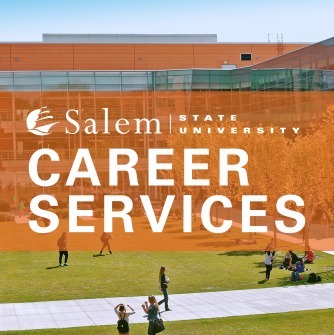
Building Career Readiness with NACE Competencies
In today’s dynamic job market, developing the right skills is key to professional success. Career Readiness is the process of developing and utilizing the essential skills needed to successfully prepare for and navigate the application and interview process in a job or internship search and thrive in the workplace. The National Association of Colleges and Employers (NACE) outlines 8 critical competencies that indicate Career Readiness:
Career & Self Development:
Proactively develop oneself and one’s career through continual personal and professional learning, awareness of one’s strengths and weaknesses, navigation of career opportunities, and networking to build relationships within and without one’s organization.
This can look like developing plans for the future, professionally advocating for yourself and others, and seeking out development and learning opportunities.
Communication:
Clearly and effectively exchange information, ideas, facts, and perspectives with persons inside and outside of an organization.
This can look like active listening, asking appropriate questions for specific information, promptly informing relevant others when needing guidance, respecting different learning styles, communication abilities, and cultural differences, and understanding the importance of verbal, written, and non-verbal abilities.
Critical Thinking:
Identify and respond to needs based upon an understanding of situational context and logical analysis of relevant information.
This can look like gathering information from diverse sources, anticipating needs proactively, recognizing the importance of multiple perspectives, and using inclusive reasoning and judgement for problem solving.
Equity & Inclusion:
Demonstrate the awareness, attitude, knowledge, and skills required to equitably engage and include people from different local and global cultures. Engage in anti-oppressive practices that actively challenge the systems, structures, and policies of racism and inequity.
This can look like receiving feedback from multiple cultural perspectives, contributing to and advocating for inclusive practices, keeping an open mind to new ways of thinking, and identifying resources to help reduce or eliminate barriers.
Leadership:
Recognize and capitalize on personal and team strengths to achieve organizational goals.
This can look like seeking feedback to inform direction, using innovative thinking to go beyond traditional methods, motivate and inspire others through encouragement and trust, and serving as a role model to others.
Professionalism:
Knowing work environments differ greatly, understand and demonstrate effective work habits, and act in the interest of the larger community and workplace.
This can look like being prompt, present, prepared, dependable, meeting and/or exceeding expectations, showing attention to detail and dedication towards doing a good job, and acting with integrity and accountability to oneself, to others, and to the organization.
Teamwork:
Build and maintain collaborative relationships to work effectively toward common goals, while appreciating diverse viewpoints and shared responsibilities.
This can look like taking the time to understand and ask questions without interrupting, manage conflicts, being accountable for oneself and the team, the ability to compromise and collaborate with others to achieve goals, and build strong, positive relationships with coworkers.
Technology:
Understand and leverage technologies ethically to enhance efficiency, complete tasks, and accomplish goals.
This can look like an openness to learn new technologies and software, using technology to improve efficiency of task completion, and the ability to determine which technologies are best suited for the tasks at hand.
These competencies not only enhance employability but also foster growth, adaptability, and leadership potential in a rapidly changing world. Whether you’re a student, recent graduate, or seasoned professional, focusing on these areas will help unlock new opportunities and drive long-term success.
